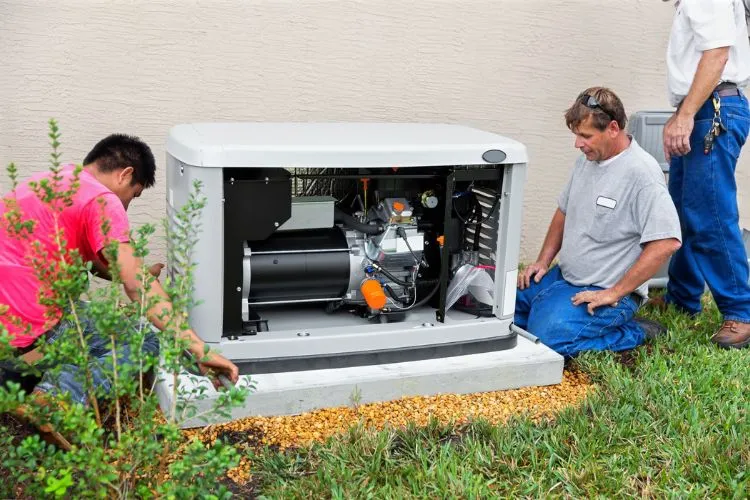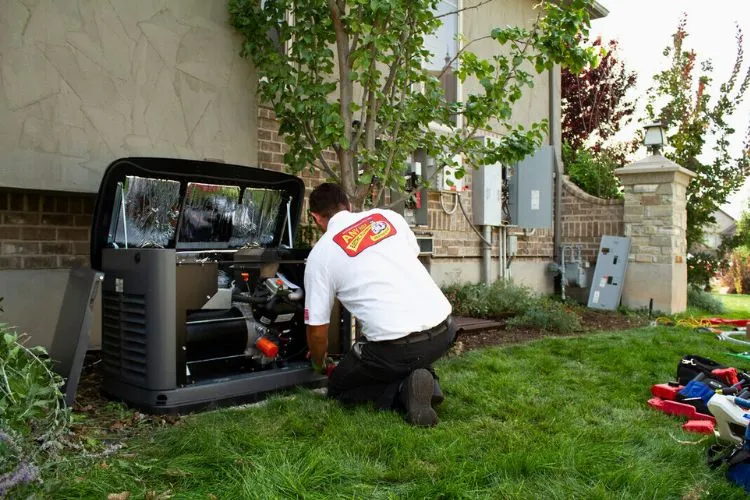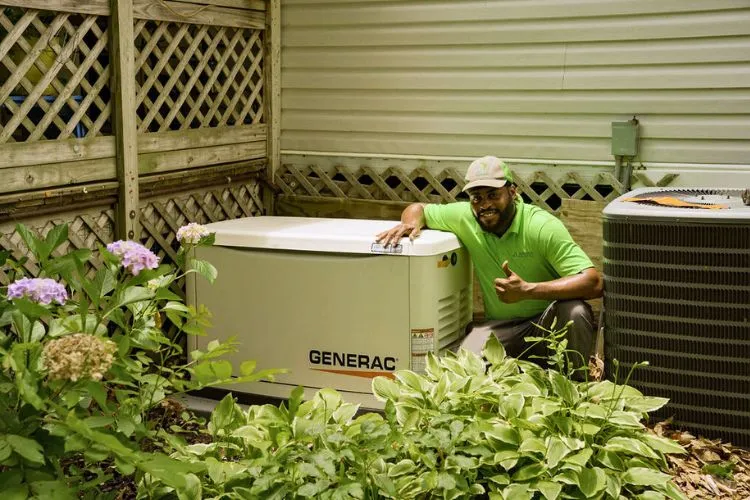In today’s increasingly digital and connected world, the dependency on electricity has never been more critical.
From keeping our foods fresh in refrigerators to powering life-saving medical devices, uninterrupted power supply plays a pivotal role in our daily lives.
However, power outages, often caused by natural disasters or infrastructure failures, can disrupt this flow, plunging homes into darkness and potentially leading to dangerous situations.
So, should you have a backup generator in your home?
It’s within this context that the idea of a backup generator for home use becomes a topic worth exploring.
This article aims to dissect whether installing a backup generator is a wise decision for homeowners, covering all the necessary angles to consider.

Understanding Backup Generators
At its core, a backup generator is a device that provides temporary electrical power by converting fuel sources such as gasoline, diesel, or natural gas into electricity.
There are mainly two types: portable generators and standby generators.
Portable generators are smaller, less expensive, and ideal for powering selected appliances. In contrast, standby generators are permanently installed outside the home and automatically kick in when power is lost, offering a more comprehensive solution.
Should You Have A Backup Generator In Your Home?
The primary reason for considering a backup generator is the peace of mind it brings during power outages.
Such disruptions can stem from various causes including, but not limited to, severe weather events, accidents damaging power lines, or grid failures.
The consequences of outages range from minor inconveniences to severe financial and health risks.
Food spoilage, the inability to heat or cool the house, or the failure of critical medical devices can all pose serious threats during an extended loss of power.
A backup generator acts as a robust defense against these risks, ensuring that essential systems continue to operate smoothly.
Key Benefits of Having a Backup Generator
The benefits of installing a backup generator extend beyond merely preventing discomfort during blackouts. A continuous power supply can be a lifeline for homes with medical equipment dependent on electricity.
It also helps keep heating or cooling systems running, warding off risks associated with extreme temperatures.
Moreover, by preventing disruptions to daily routines and protecting properties from damage — for example, by ensuring that sump pumps continue operating to avoid basement flooding — backup generators add an additional layer of security.
Additionally, they can enhance the resale value of a home by making it more appealing to potential buyers.
Considerations Before Buying a Backup Generator

Capacity and Size
Identifying your power requirements is the first step towards choosing the right backup generator.
It’s essential to calculate the wattage needed to run critical appliances during an outage and then select a generator model that meets those needs without being excessively large or expensive.
Installation and Maintenance
While some homeowners might consider installing a backup generator themselves, it is generally recommended to hire professionals to ensure it complies with local codes and safety standards.
Generators also require regular maintenance, such as oil and filter changes, to remain in good working condition.
Costs
Investing in a backup generator involves upfront costs for the unit and installation, along with ongoing operating expenses for fuel.
The total cost varies widely depending on the generator’s size and model, making it crucial to consider one’s budget and needs carefully.
Environmental Impact
Generators, especially those running on fossil fuels, emit pollutants and can be noisy. It’s important to consider the environmental impact and investigate eco-friendlier options, such as solar-powered models, if sustainability is a priority.
Legal and Safety Considerations
Compliance with local building codes and safety regulations is mandatory when installing a backup generator.
Proper installation helps mitigate risks associated with carbon monoxide poisoning and fires, making it a critical consideration for homeowners.
Choosing the Right Backup Generator for Your Home
Selecting the right backup generator involves assessing your home’s specific needs, such as required capacity and preferred fuel type. Researching brands, reading reviews, and consulting with experts can help in making an informed decision.
Ultimately, the best choice balances the need for power with considerations of cost, environmental impact, and legal requirements.

Installation Tips
Hiring a professional installer can ensure that your backup generator is set up safely and in compliance with all local regulations.
They can advise on the best location for the generator, taking into account factors like safety, noise, and access for maintenance.
Preparing the site in advance, including arranging for fuel storage if necessary, can streamline the installation process.
Maintenance and Safety Practices
To ensure reliable operation, a backup generator requires regular maintenance, including checks and replacements of consumables like oil and filters.
Safety practices, such as ensuring adequate ventilation for the generator, regularly testing carbon monoxide detectors, and following the manufacturer’s operation guidelines, are essential to prevent accidents and health risks.
Frequently Asked Questions (FAQs)
How do I calculate the size of the generator I need for my home?
To calculate the size, list all the appliances you need to power simultaneously during an outage and add up their wattage. This total will give you a rough estimate of the generator size you need.
Can I install a backup generator myself, or do I need a professional?
While some individuals may have the skills to install a generator, it’s highly recommended to use a professional installer to ensure safety and compliance with local codes.
How often should a backup generator be serviced?
The service frequency can vary based on the model and usage, but generally, a generator should be serviced at least once a year.
What are the most environmentally friendly options for backup generators?
Solar-powered generators or those that run on alternative fuels like biodiesel are considered more environmentally friendly.
How long can a backup generator power my home during an outage?
The duration depends on the generator’s capacity and the total load being powered, with larger units and moderate consumption extending uptime.
Are there any rebates or incentives for installing a backup generator?
Some local governments and utility companies offer rebates or incentives for installing energy-efficient or alternative fuel generators. Checking with local agencies is the best way to find out.
Conclusion:
The decision to invest in a backup generator for your home is not one to be taken lightly. It requires a careful assessment of your needs, the potential costs involved, and the benefits of uninterrupted power supply.
While the upfront and ongoing costs can be significant, the peace of mind and protection offered by having a reliable power source during outages can be invaluable.
Homeowners must weigh these factors and consider their unique circumstances when deciding if a backup generator is the right choice for them.
